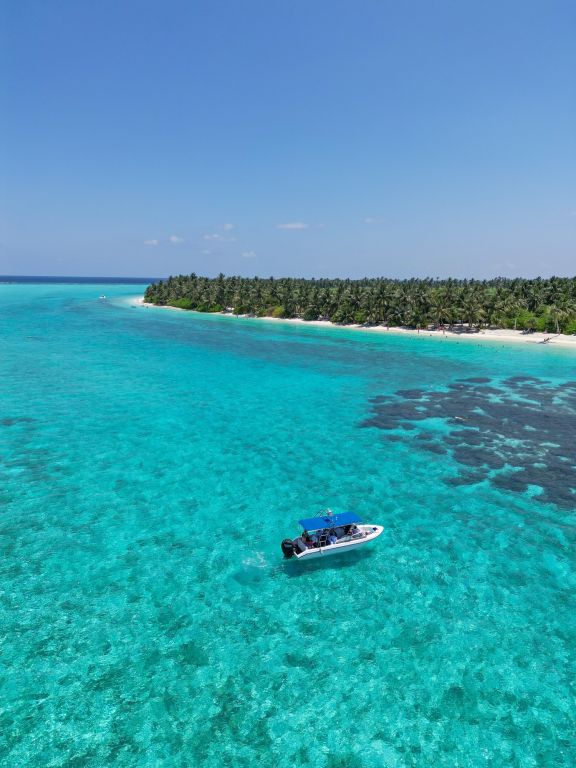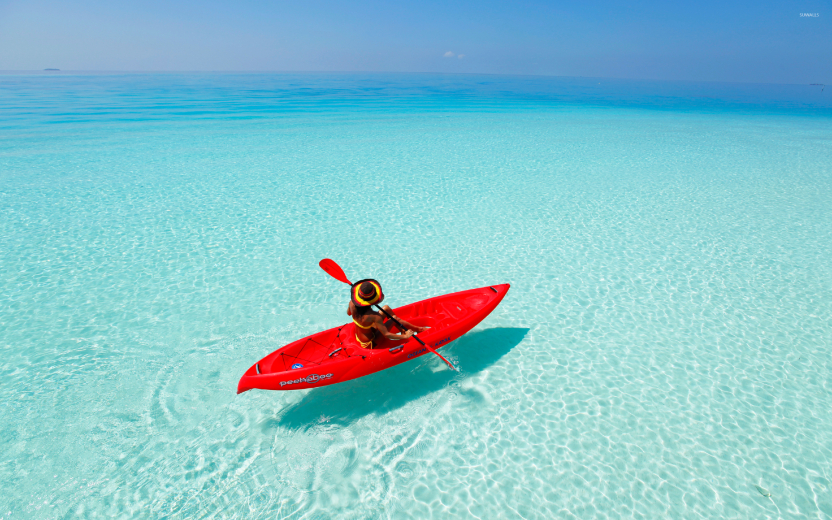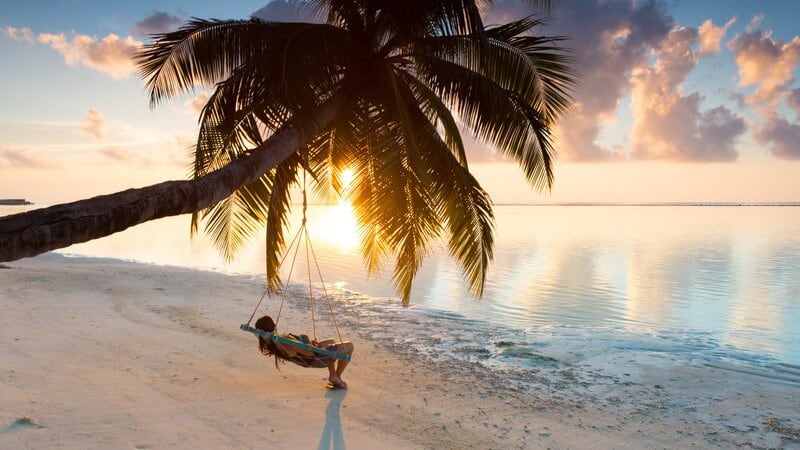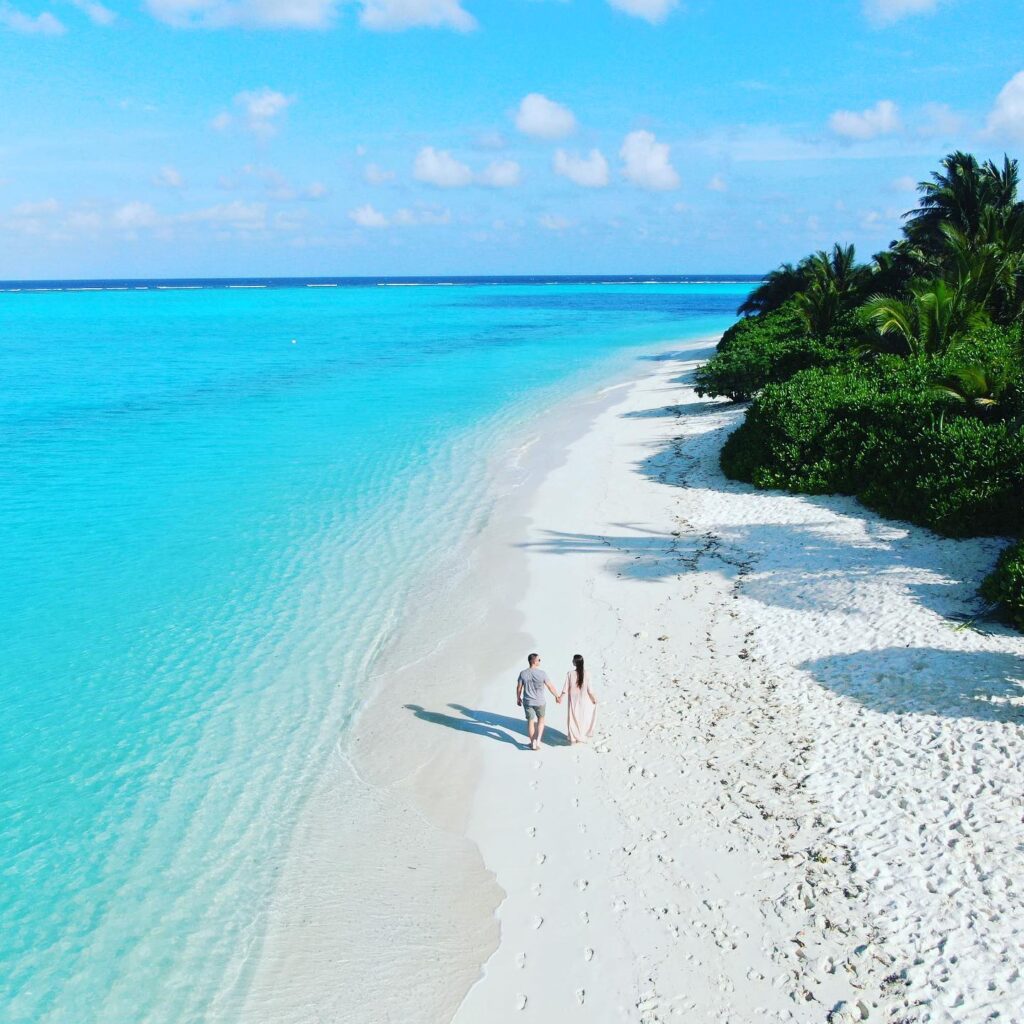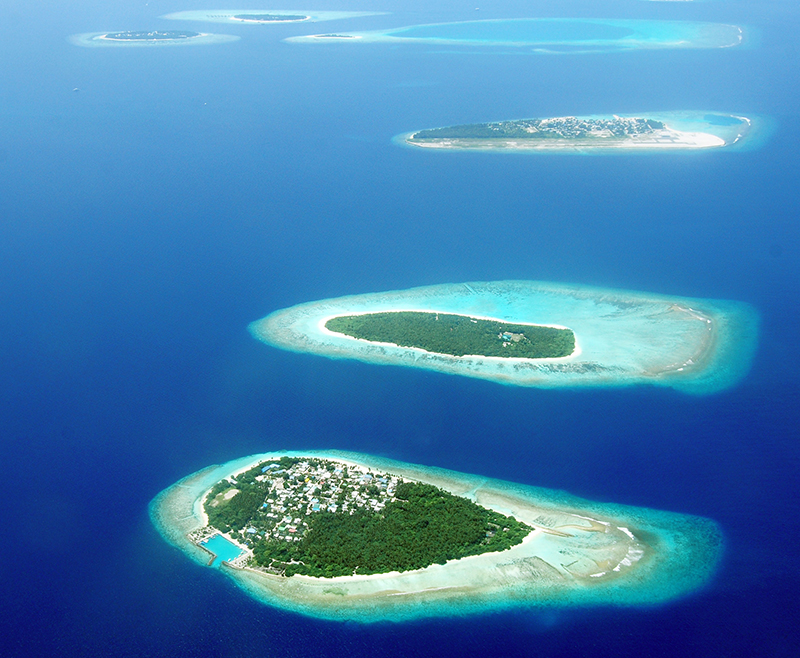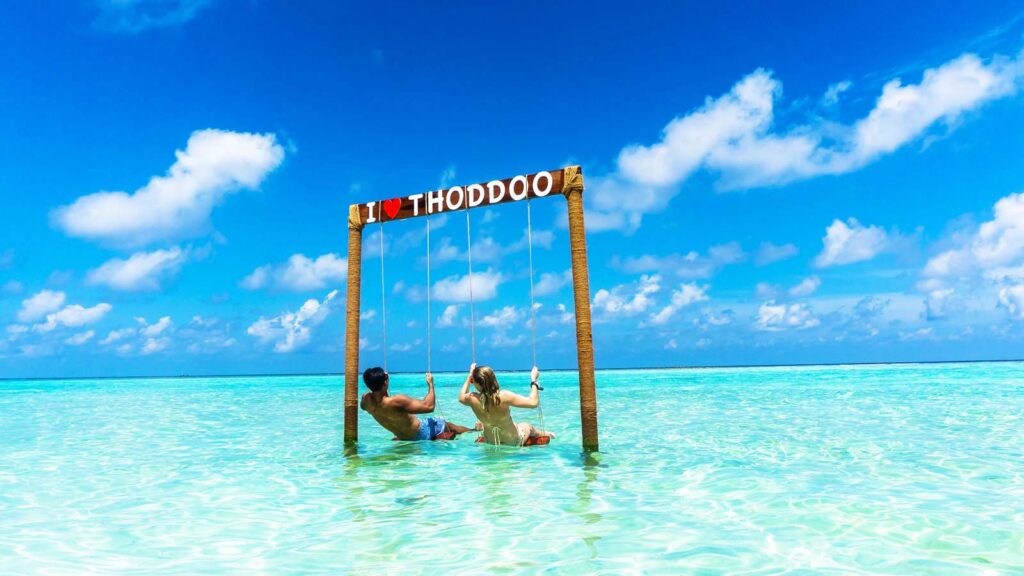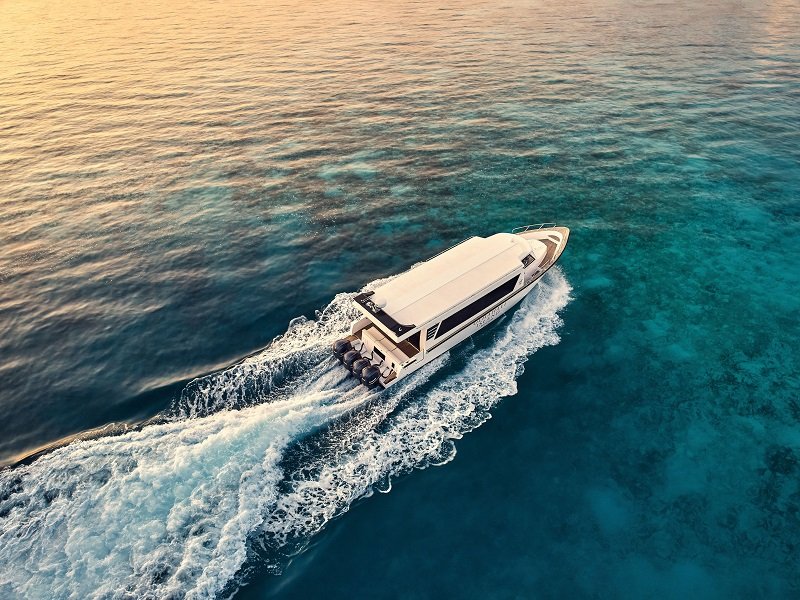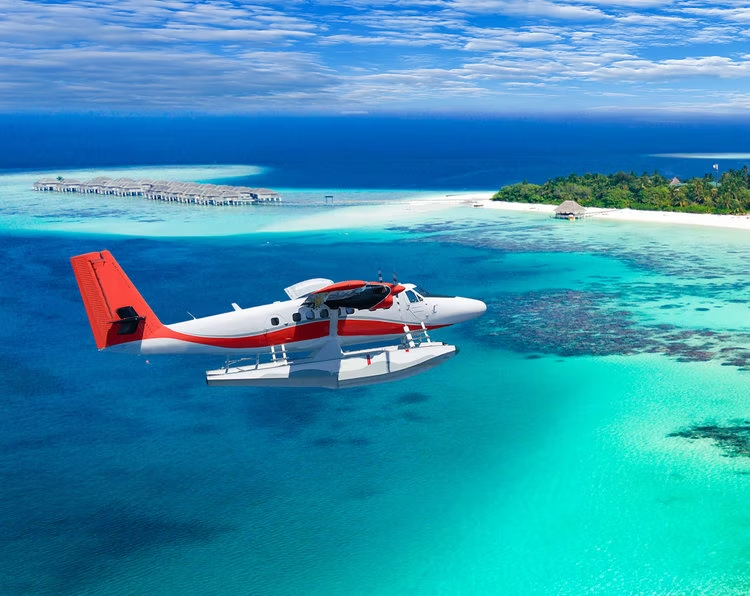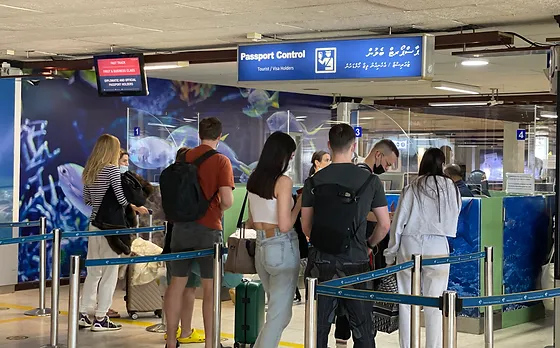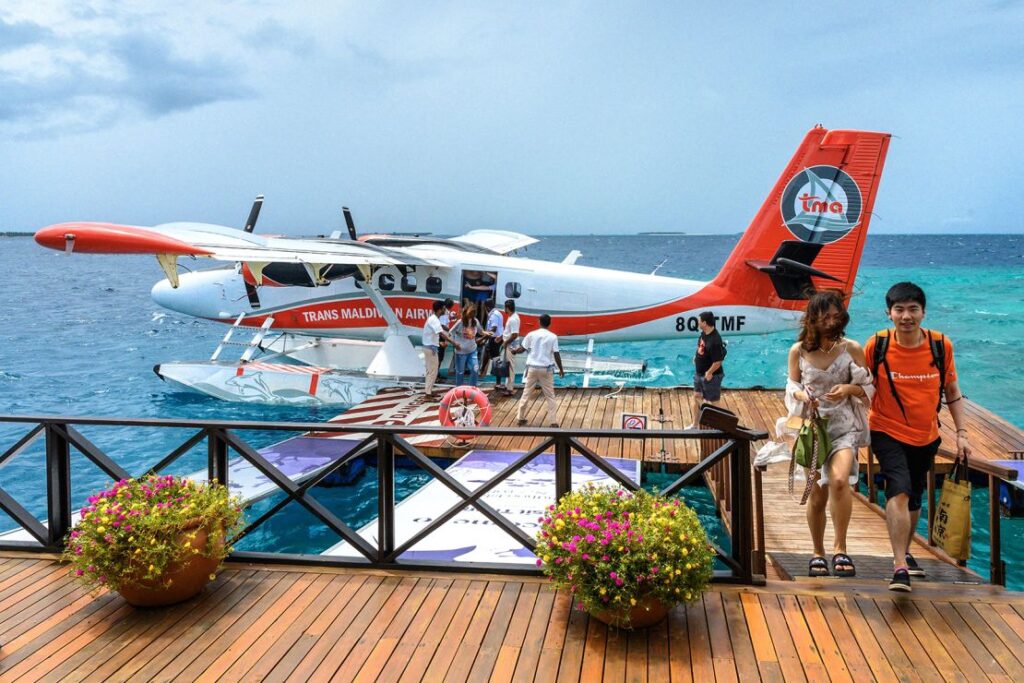Basic Information About the Maldives
The Maldives is a stunning archipelago located in the Indian Ocean, part of South Asia, consisting of approximately 1,200 islands grouped into 20 coral atolls. As of 2024, the population is around 550,000 people. The capital city, Male, is home to about 105,000 residents, and English is widely spoken, making it a bustling hub of activity and culture.
Geography and Climate
The Maldives stretches over 400 kilometers and is located south of India, with Sri Lanka as its nearest neighbor. The islands are renowned for their breathtaking coral reefs and are considered one of the best snorkeling destinations globally. The constant tropical climate, with temperatures around 30°C, makes it a popular winter escape for Europeans.
Economy and Currency
The Maldives is a developing nation with an economy primarily based on tourism and fishing. The local currency is the Maldivian Rufiyaa (MVR), with a fixed exchange rate of 1 USD = 15.42 MVR. While US dollars are widely accepted, ATMs are only available on larger islands and at the airport, so carrying sufficient cash is advisable. The country has seen significant economic growth, with tourism continuing to be a key driver, although it employs only a small portion of the local workforce.
Culture and Society
The Maldives practices modern Islam as its state religion. The local language is Dhivehi, written in the Thaana script, which reads from right to left. The national emblem features a moon, a star, a coconut tree, and the national flag, symbolizing the Republic of Maldives. The coconut tree, the national tree since 1985, is valued for its versatility, while the pink rose, declared the national flower in 1985, symbolizes the islands’ beauty.
Tourism
Tourism in the Maldives has seen significant growth, especially since 2010, when local islands were permitted to build hotels. This change has made the Maldives more accessible, offering affordable accommodations alongside the luxurious resorts. The peaceful and relaxed atmosphere, except for the increasingly popular Maafushi Island, continues to attract tourists seeking tranquility. The expansion of Velana International Airport and the introduction of more seaplane services are part of efforts to accommodate the growing number of visitors.
Health and Safety
The Maldives is generally a safe destination, but visitors should be prepared for the strong equatorial sun. High SPF sunscreen is recommended, especially for children. Mosquito repellent is also advisable due to the tropical climate. While no vaccinations are mandatory, hepatitis A and typhoid fever vaccinations are recommended. Basic healthcare facilities are available on the islands, with more comprehensive services in Male.
Travel and Connectivity
Visitors to the Maldives typically arrive at Velana International Airport in Male. A 30-day tourist visa is granted upon arrival, provided accommodation confirmation is presented. The IMUGA form, an online immigration system, must be completed before arrival. The Maldives uses English-type sockets, so adapters are generally unnecessary. The international dialing code is +960, and local mobile operators Dhiraagu and Ooredoo provide reliable network coverage.
Cuisine
Maldivian cuisine is simple yet flavorful, heavily influenced by Indian culinary traditions. It features spicy dishes with a focus on fresh seafood. Local specialties include mas huni (a tuna and coconut dish) and garudhiya (a fish soup).
The Maldives offers a unique blend of natural beauty, cultural richness, and modern conveniences, making it a captivating destination for travelers worldwide. Whether you’re exploring its vibrant marine life, relaxing on its pristine beaches, or immersing yourself in its rich culture, the Maldives promises an unforgettable experience.
Quick Links
General infomations
Contact Information
- Address: Thoddoo, Maldives
- Phone: +960 957-3886
- Email: [email protected]
Copyright© 2025, Budget Holiday Maldives. All rights reserved.

